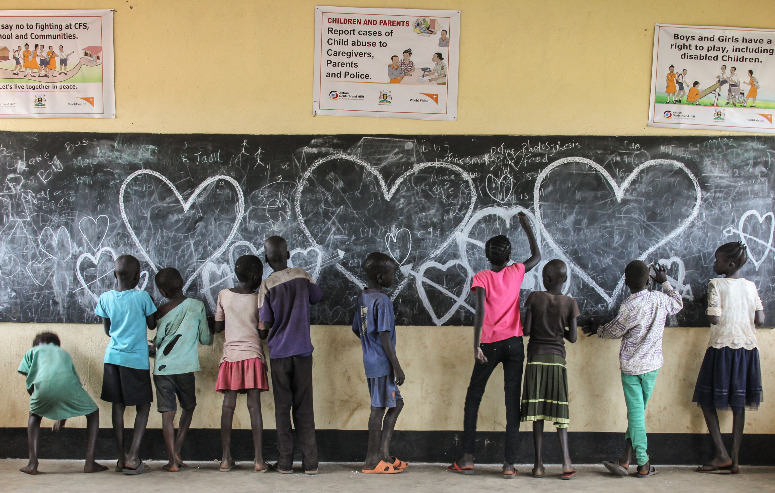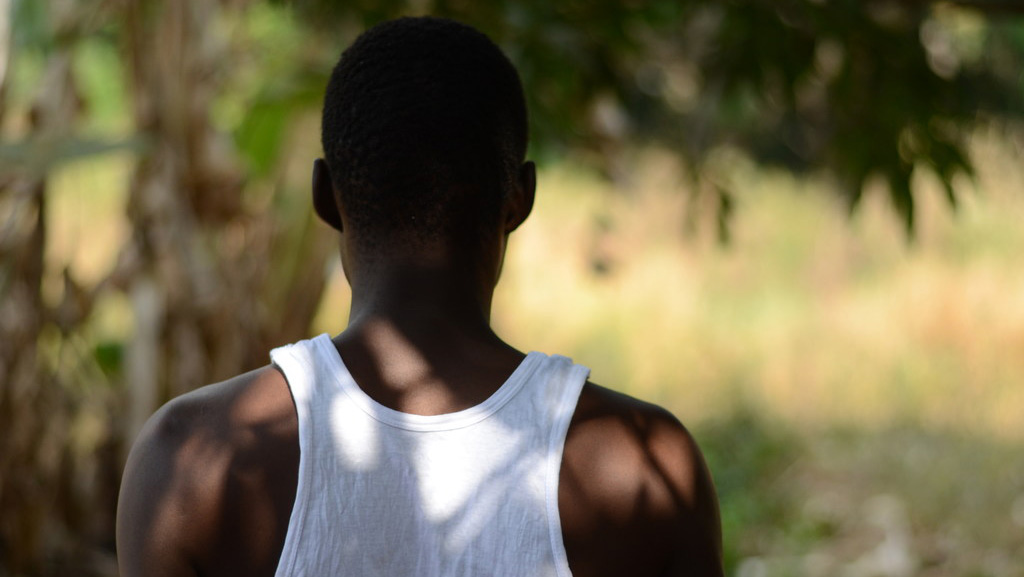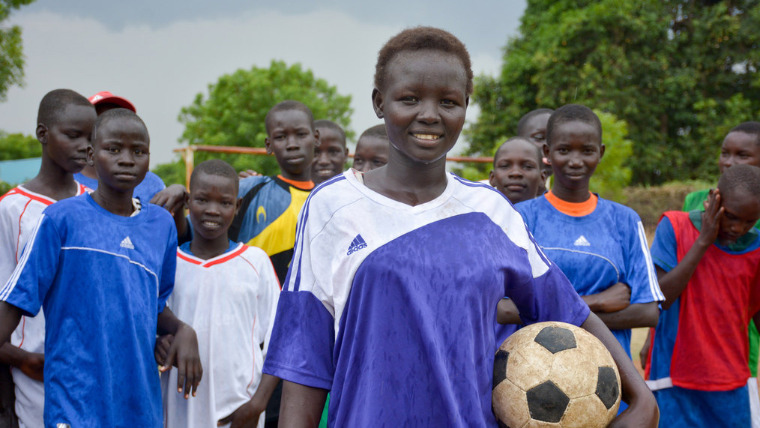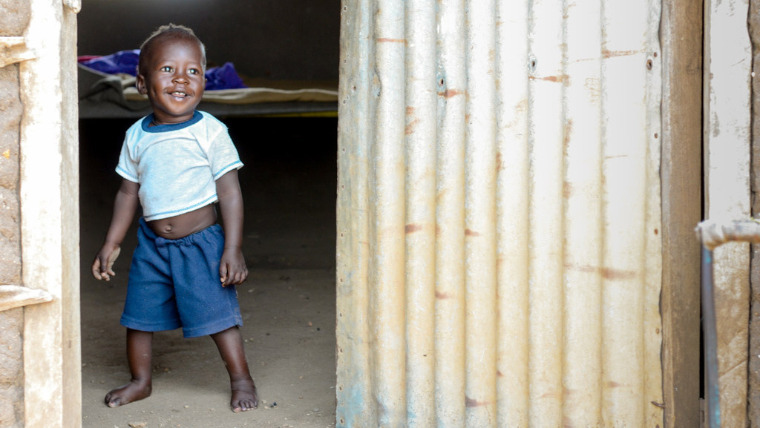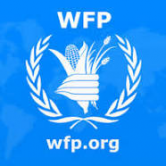Situation Update
The conflict in South Sudan began in December 2013. An estimated 4 million people have been forced to leave their homes looking for safety in other places. Two million people are thought to be displaced inside South Sudan, while another 2 million have fled to neighbouring countries including Uganda, Ethiopia, Kenya and Sudan. The total number of people in need of humanitarian support and protection has now reached over 7 million – 4.2 million of those are children.
HUNGER AND STARVATION
South Sudan is facing its highest level of hunger and malnutrition since the conflict began. 4.8 million people – many of them children – are facing severe food shortages across the country. If nothing changes, this number is expected to rise to over 6 million and some parts of the country will be at risk of famine within the next couple of months. The threat of starvation and death is real for many children and families, with over a million children aged under-five projected to be malnourished. About 270,000 of those children suffer from severe acute malnutrition, (the most critical form of malnutrition).
Donate Now
You can read more about the hunger ravaging East Africa on our East Africa Update Page.
We can’t stand by and watch this unfold in front of our eyes when we know more can be done. The most vulnerable are children. Those with the power and leverage to change the situation must not allow the lives of the children of South Sudan to suffer at the expense of politics and self-interest.
- Perry Mansfield, World Vision South Sudan Programme Director
CHILDREN IN SOUTH SUDAN
Children in South Sudan are living with the very real fear of hunger and of violence, including armed recruitment, sexual violence, kidnapping and injury. Children have been attacked, abducted, killed, abused, injured or exploited due to South Sudan’s ongoing conflict. The long-term effects of multiple crises, loss of time in school and psychosocial stress will ripple for decades to come.
- 100,000 children have been directly affected by recruitment, abuse, exploitation and other grave violations. (UNOCHA, 2017)
- More than 2 million children have been forced to flee their homes. UNHCR, 2017)
- 1 million children need psychological support to recover from the violence, grief, separation and displacement. (UNICEF, 2017)
- 7 million people need humanitarian assistance and protection in South Sudan – and 60% of them are children. (UNOCHA, 2017)
- Tens of thousands of children have been separated from their families.
- More than 19,000 children, mainly boys, have been forced to join the fighting as child soldiers.
- More than 1.17 million children have lost access to education due to the conflict and an estimated 1 million children are suffering psychologically.
This video gives a snapshot of the challenges facing school children in South Sudan.
In a recent study we did, children were asked to rank their situations. In Juba, less than one child out of five said they were thriving, while 77% reported that they're struggling and 7% said they were suffering.
• More than 686,200 children under the age of five are believed to be acutely malnourished – including more than 231,300 who are severely malnourished.
• Over 10,000 children are unaccompanied, separated from their families or missing.
• An adolescent girl in South Sudan is three times more likely to die in childbirth than to complete primary school.
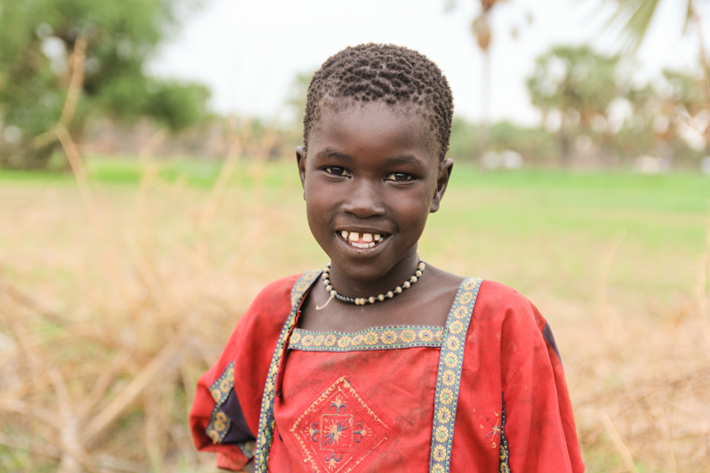
Photo: Ayen is eight and during the conflict, was separated from her family. World Vision helped reunite the family in one of the IDP camps.
If you go outside the UN camps to buy bread, okra, or meat, then something might happen to you. You feel afraid.
- Elizabeth, 15, Juba
Our teams in South Sudan are speaking regularly with children in three areas affected by the conflict to find out how they’re living and about the risks they cope with every day. Their experiences give a snapshot of the wider conflict and how it’s affecting children.
Read our latest report: Fear and want: children living in crisis in South Sudan ›
WHAT ARE WE DOING TO HELP
We have been on the ground responding to this devastating crisis since it began. Our teams are working to save lives and ease the suffering of children and families affected by the conflict. Working in South Sudan is difficult. The serious insecurity, added to transport problems during the rainy season make it increasingly hard to access vulnerable communities. But, working with partners, we have delivered life-saving items to more than 1,018,239 people since January 2018, and 406, 637 of those are children.
For more details on this please see our East Africa Update page.
We've been supporting vulnerable people with:
- food and nutrition assistance,
- water,
- health and sanitation,
- hygiene,
- shelter and basic household kits
- and child protection activities, including setting up Child Friendly Spaces.
We've also been working on livelihood activities, with families displaced within South Sudan.
Since February 2018, World Vision South Sudan has been working in partnership with UNICEF, the National Disarmament, Demobilisation and Reintegration Commission (NDDRC), and the Ministry of Education, to reunify and reintegrate 629 children associated with armed groups. In March 2018 alone, 155 released former child soldiers received psychosocial support.
Partnership with World Food Programme
In close partnership with the United Nations’ World Food Programme, we’ve recently started three more, year-long projects in South Sudan to help address the hunger crisis. In Juba, the capital of South Sudan, vulnerable households are being given $45 a month (approx £32) to buy provisions in local markets. This has the effect of stimulating the local economy. We’re also providing nutrition education, hygiene awareness sessions, business skills training and home gardening groups helping over 2,000 people overall.
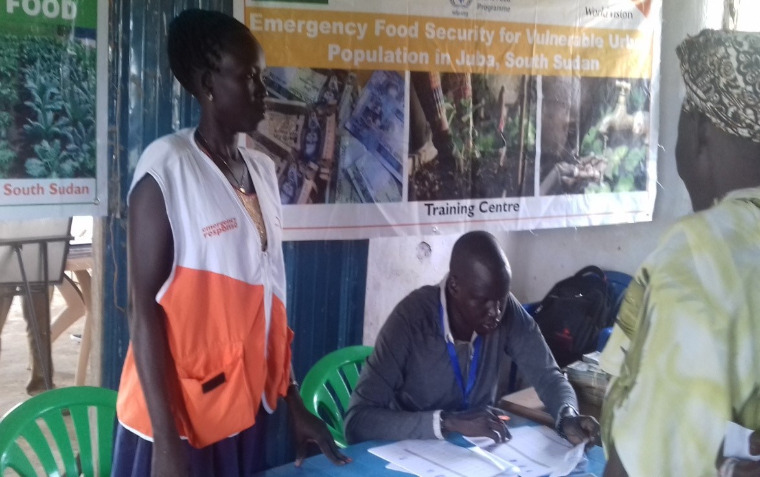 World Vision staff working with people in South Sudan.
World Vision staff working with people in South Sudan.
The UN’s Protection of Civilians camps for people identified as being at high risk. It’s not safe for them to leave to search for food or work. We’re working in these camps providing cereals, pulses, fortified oil and salt.
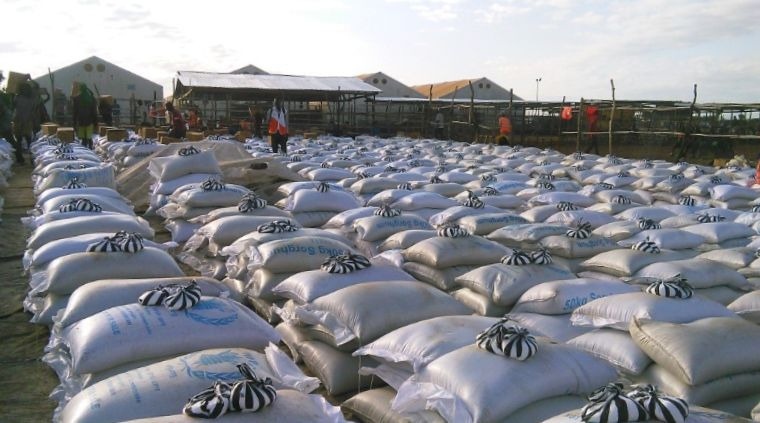
World Vision staff prepare food to be distributed in Protection of Civilians camps.
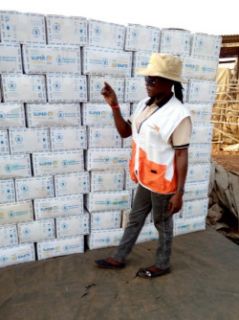
In the Upper Nile Area of South Sudan, we’re providing mobile food distribution by air to reach 10,000 people cut off by conflict. Food is dropped, and our teams work with communities to distribute it to the most vulnerable.
We’re also providing food in schools. This encourages enrolment and attendance, helps pupils’ concentration and takes away some of the family pressure to provide food.
And by giving high energy food to all under-fives, we’re helping to prevent malnutrition from damaging them in the early years of development.
Right: World Vision Staff account for the high energy and nutritious food which is given to young children.
Hard to reach
Because we work wherever we’re most needed, our teams are improving the living conditions of Internally Displaced People (IDPs) in the UN camp in Malakal and other sites in Upper Nile state. However, we know that around 90% of IDPs are constantly moving or sheltering away from organised camps so we’re also working in the more hard-to-reach and remote places.
Our work in remote and volatile areas includes:
- food distribution
- distributing vegetable seeds and tool kits, including assorted seeds (tomatoes, onions, water melons, collard greens, carrots, okra and cabbage)
- diagnosis and treatment of malnutrition
- providing access to clean and safe water
- hygiene facilities
- providing mosquito nets and jerry cans to tens of thousands of people
- protection and support for children seriously affected by conflict
- enrolling children in primary education and constructing temporary classrooms for primary and for preschool.
Seeking refuge in Uganda
Over 1.3 million South Sudanese people have been forced to flee to Uganda for safety, with an average of 100 refugees arriving each day.
85% of these refugees are women and children under the age of 18. These children bear the brunt of the conflict especially when they are unaccompanied or separated.
Children on the journey experience challenges such as lack of shelter, food and clothing and are vulnerable to psychosocial distress, sexual and gender-based violence, abuse and exploitation.
You can donate now to our South Sudan appeal to give urgently needed help to children and their families fleeing to Uganda.
Scovia's Story
Bears on stairs
With conflict still raging in South Sudan, thousands more children continue to cross the border into Uganda. Most of them have absolutely nothing – not even toys. In December 2017, 700 teddy bears donated by you embarked on a 6,000-mile journey to the refugee settlements in northern Uganda to give the children a little bit of Christmas joy. You can find out more here »
Child Protection
We've set up a child protection programme, including Child Friendly Spaces, early childhood development and peace-building projects. As of April 2018 over 53,000 children were enrolled in our 37 Child Friendly Spaces receiving psychosocial support. Over 13,000 children aged 3-6 also took part in our early childhood development activities.
Read our latest Story: Child Friendly Spaces For South Sudanese Refugees in Uganda »
Photo: Children in Adjumani, Northern Uganda are having fun at the CFS. They love coming here every day and enjoy speaking to the World Vision staff.
In April 2018 alone, we reached over 728,000 people in Uganda with lifesaving assistance including more than 381,000 children.
More we're doing to help
We're the lead agency distributing food in partnership with the World Food Programme (WFP), reaching more than 260,000 refugees.
We've been renovating water sources, constructing boreholes and latrines, and delivering core relief items including blankets, mats, tarpaulins, mosquito nets, solar lamps, soap, sanitary pads, underwear and kitchen sets. And we're providing hot meals at the new refugee settlements.
You can read more about the situation in Uganda here.
Involving children in the peace building process
Our teams in Uganda, in partnership with UNICEF, have also started a peace building, participation and psychosocial support project for refugees from South Sudan.
The Empowering Children as Peace Builders (ECaP) model is proven to build supportive and safe environments for all children to participate in peace building.
HOW YOU CAN HELP
Right now we have a chance to act. To stop hunger and starvation from more lives.
Funding shortfalls, and other challenges have hampered aid efforts to reach the worst-affected and most vulnerable people, especially children.
You can give now to help improve the wellbeing of children in South Sudan today and into the future.
RAW HOPE IN SOUTH SUDAN
South Sudan is one of the countries supported by Raw Hope, an initiative from World Vision that is focused on saving and protecting children in the world’s most dangerous places.
Watch the latest video about our Raw Hope work in South Sudan.
FIND OUT MORE ABOUT RAW HOPE »
STORIES AND BLOGS
THANK YOU
So far you've helped us raise over £60,000 for the South Sudan Crisis Appeal.
But we still need more to provide emergency food, water and medical care to the children and families most in need.
